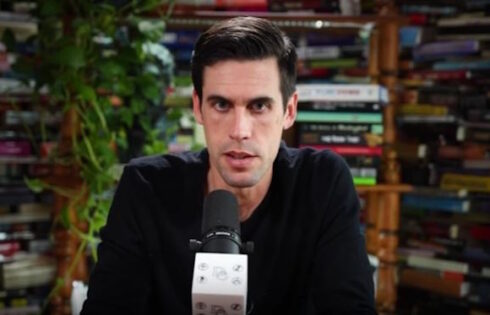
‘A commitment to diversity, equity and inclusion has no finish line’
An Ohio State University Task Force on Racism and Racial Inequities report calls for the university to “become a leader in transforming society through the advancement of equity, diversity and inclusion.”
“A commitment to diversity, equity and inclusion has no finish line,” the 16-page report’s executive summary stated.
But a campus DEI leader refused a request from The College Fix this month to say how many of the diversity, equity and inclusion goals it has implemented since the report was published in April.
The College Fix reached out three times via email to Sara Childers, Ohio State’s director of strategic diversity planning, training and assessment in the Office of Diversity and Inclusion, to ask what has been so far done to act on the goals included in the plan. Childers responded September 9 that her team is unable to comment at this time.
The report is organized into 15 “Grand Challenges,” articulating DEI goals in areas including admissions and enrollment, teaching methods and curriculum, and recruitment and retention of staff from minority groups.
“Greater attention needs to be placed on developing a comprehensive plan to recruit, hire, retain, advance and recognize the contributions of faculty of color, women and other underrepresented groups,” the report stated.
The task force also called on the university to restructure its budget to buy more products from minority-owned companies. It recommends “each unit with purchasing authority [should] provide, as a component of its annual diversity plan, a plan and timeline to establish goals that substantially increase its external purchasing from minority vendors.”
The report also seeks to instill DEI in the curriculum, recommending OSU ”charge an ad hoc group with establishing a baseline core curriculum that reflects minimum DEI education requirements for students and employees.”
Additionally, the task force recommends addressing whether “students of color may disproportionately live in certain tiers of residential halls,” and if needed, “recommend strategies to diversify residences, especially the newer facilities.”
Commentators say DEI often emerges from the administration, dissenting faculty stay silent
Psychologist and former professor Bo Winegard told The College Fix in an email on Sep. 7 that DEI programming is often brought in by administrators without faculty approval.
“Many professors lament the encroachment of progressive ideology (DEI) but are afraid to speak out against it publicly,” Winegard told The Fix via email.
As for the future of DEI in higher education, Winegard said he believes DEI will continue to have a divisive and polarizing effect on education.
“[Higher education] will become more polarized because conservatives will come (and already are coming) to see it as hostile to their values and concerns,” Winegard said via email. “That, in turn, will lead to even fewer conservatives in the academy. Which will accelerate the deplorable trend toward ideological homogenization and anti-conservative bias.”
National Association of Scholars fellow John Sailer echoed Winegard’s statement that such measures are commonly promoted by administrators, not faculty, in a September 13 email to The Fix. NAS is a right of center American advocacy nonprofit.
“Administrators, not faculty, are the primary force behind DEI measures. Of course, a vocal portion of faculty vehemently support every manner of DEI measure, and more and more are hired for their DEI expertise,” Sailer wrote.
”These measures touch virtually every aspect of the university, from faculty hiring and promotion, to curriculum, to students life, to admissions standards,” Sailer said.
Sailer told The Fix that he believes that DEI measures have resulted in a decrease in admissions standards, pointing to the Ohio State College of Engineering dropping the SAT/ACT math score requirement as an example
“That said, a lot of professors are either unenthusiastic or even opposed to the measures enacted under the banner of DEI, but the cost of publicly opposing these measures is high. Most have no choice but to stay quiet,” Sailer said.
MORE: U. of Oklahoma hosts ‘DEI Week’
IMAGE: The Ohio State University/Facebook
Like The College Fix on Facebook / Follow us on Twitter






Please join the conversation about our stories on Facebook, Twitter, Instagram, Reddit, MeWe, Rumble, Gab, Minds and Gettr.